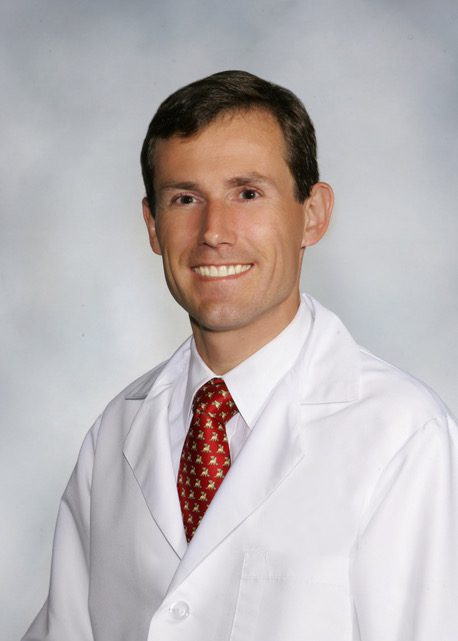SALEM – Medical professionals specializing in obstetrics and gynecology (OB-GYN), who deal with the first heartbeats of an unborn child and assist at the intimate moments of the birth of a new life, can offer new perspectives to a discussion that seem to be concentrating more on ethical, religious, or human rights issues.
“These are the moments that are some of the most intense moments of someone’s life,” said Alexy Kochowiec, newly appointed chair of OB-GYN at Salem Hospital.
Kochowiec completed his residency at Brown University. He also worked as a clinical instructor of OB-GYN and Reproductive Biology at Harvard Medical School and served as a member of the Massachusetts Medical Society’s Committee on Maternal and Perinatal Welfare.
Born in Switzerland to a Swiss mother and a Polish father, a historian by his first college degree interested in the matters of women’s rights, a traveler, who learned Russian to the degree of fluency, Kochowiec seems to be a perfect fit for his new position at Salem Hospital that involves a deeper understanding of subtle matters that often lie beyond medicine.
“The issue with the women’s health historically has been marginalized,” said Kochowiec, adding that abortion was just the tip of the iceberg. “When you look at the amount of money that goes towards research in women’s health, when compared to other medical issues, it’s often just a small fraction, and this is even more true of pregnant women.”
“The way to change some of that is to bring attention to these matters,” said Kochowiec.
The bottom line, he said, is that historically they were the men that made the decisions on “what’s allowed, and what’s not allowed” in women’s healthcare, which led to restrictions, and also led “to the women not being in charge of their own future.”
“Luckily, in the last 50 years there have been major strides to go away from that,” said Kochowiec.
Although American women got the right to vote earlier than in many other countries, there is a threat to women’s health that exists right now in the U.S. on a wider level, said Kochowiec. And a threat to women’s health is also a threat to the nation, as the “house divided cannot stand,” he said.
Kochowiec, who took over “an exceptional, well managed, and functional” OB-GYN department after Allyson Preston, MD, who stepped down as chair in January, said he had to be constantly sensitive that he was working in the sphere that he could never have a direct experience with.
“I don’t think it disqualifies me for the job, but I think it makes me have to be incredibly sensitive to things, and I have to let the wisdom of my patients run through me,” said Kochowiec. “Hopefully I can be a forceful advocate for all our patients and potential patients on the North Shore and beyond.”
And there might be a need for advocacy. With the anti-abortion movement widening on the state level, still “a bigger threat is on the national level,” said Kochowiec. A national legislation, “which is very conceivable,” that outlaws women’s right to choose, and “access to safe and active contraception,” might become “a problem that I can’t imagine,” said Kochowiec.
“I heard from some of my mentors at training of what things were like before Roe v. Wade, it was an absolute nightmare,” said Kochowiec.
People will still have abortions, the matter is how they can be done safely, said Kochowiec. The number of people who died from complications and sepsis after illegal abortions in the past is “truly horrific.” That’s why, for Kochowiec, a significant part of the job is “to make sure that a woman has a voice.”
For that end, Kochowiec will now head a wide range of women’s health services, including the hospital’s top-rated obstetrical service and birthplace, its world-class, minimally invasive gynecology program, and several specialty programs operated in partnership with Massachusetts General Hospital.
Kochowiec also aims at establishing stronger ties with other departments necessary for providing high-quality women’s healthcare services, such as the anesthesia and neonatology departments and with subspecialty departments at Mass General Hospital, such as the MFM (high risk pregnancy), gynecologic oncology, and reproductive endocrinology departments. One of the challenges is to integrate some of the newer members of the department, who have just graduated from their residency.
“When people retire, there should be someone who can continue the tradition,” said Kochowiec.
He will also continue to partner with the Lynn Community Health Center (LCHC) and North Shore Community Health (NSCH) to provide women’s health services to underserved communities on the North Shore, because to Kochowiec, medicine is more than just a job, it’s what he enjoys doing.
“I think I can speak for a lot of my colleagues in that, the reason we chose obstetrics and gynecology is because it reflects something that is almost unique in medicine, which is the happy moments,” said Kochowiec.
Oksana Kotkina can be reached at [email protected].

